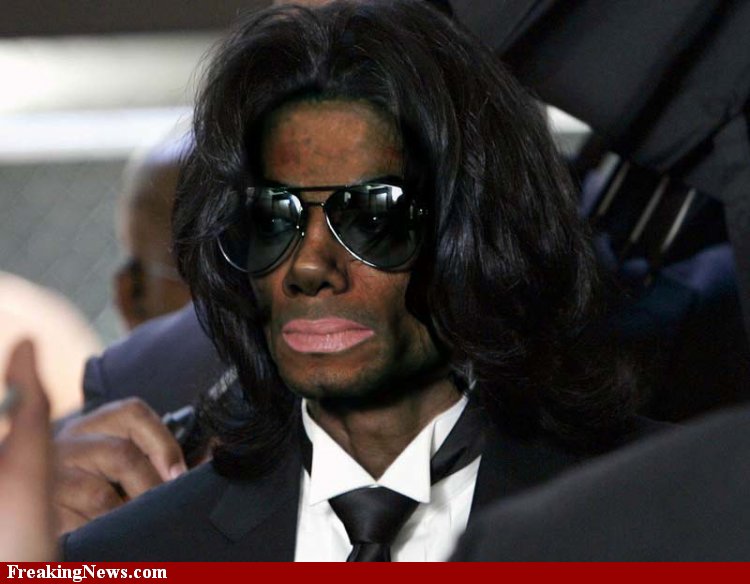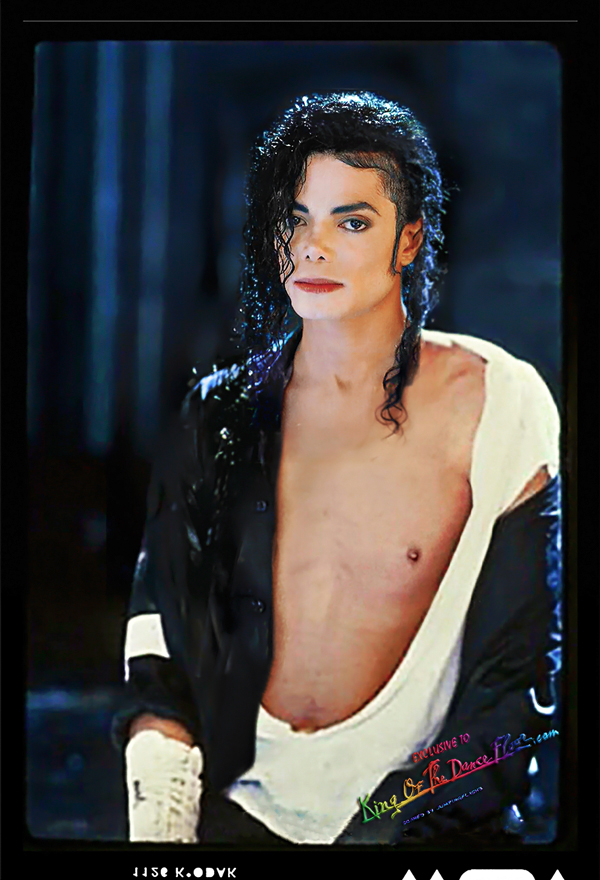Was Michael Jackson Black? Unpacking The King Of Pop's Identity
For so many years, the question of Michael Jackson's racial identity has, rather understandably, lingered in the minds of people all over the globe. It's a query that often comes up, perhaps because of his changing appearance over time, or maybe because of the way he seemed to transcend categories. People wonder, you know, about his background and how he saw himself.
To cut to the chase, and to make things very clear, yes, Michael Jackson was Black. He was born into a Black American family, and his early life and career were deeply rooted in African American culture and music. His journey, as a matter of fact, from a young boy in Gary, Indiana, to a global superstar, is actually a powerful story of talent and perseverance.
Yet, it's true, his relationship with his Blackness became, in a way, quite complicated as he grew older and his public image shifted. This article aims to explore that story, offering clarity on his heritage, the changes in his appearance, and the lasting impact of his incredible life and work, too it's almost a look at a very unique path.
Table of Contents
- Michael Jackson: A Brief Look
- The Simple Truth: Yes, He Was Black
- Addressing the Visual Shift: Vitiligo Explained
- Common Questions About Michael Jackson's Race
Michael Jackson: A Brief Look
Michael Jackson, born on August 29, 1958, was a Black American musician who became one of the most iconic figures in music history. He started his journey as a child star, leading the Jackson 5, and then went on to achieve unparalleled solo success. His music, his dance moves, and his unique stage presence captivated literally billions of people, you know, around the world.
He was, in some respects, a true phenomenon, consistently pushing the boundaries of what was possible in popular music. His influence stretches far and wide, inspiring countless artists across different genres. He really did leave a mark that is still felt today, as a matter of fact, in many ways.
Personal Details and Bio Data
| Full Name | Michael Joseph Jackson |
| Born | August 29, 1958 |
| Birthplace | Gary, Indiana, USA |
| Nationality | American |
| Race/Ethnicity | Black / African American |
| Occupation | Singer, Songwriter, Dancer, Record Producer, Philanthropist |
| Years Active | 1964–2009 |
The Simple Truth: Yes, He Was Black
To put it simply, Michael Jackson was Black. This is not just a detail about his birth; it shaped his early experiences, his music, and his path as an artist. His identity as a Black man was, you know, a fundamental part of who he was, especially during his formative years.
He came from a family deeply immersed in the Black American experience, and this heritage truly informed his musical beginnings. It's a very clear fact that cannot be overlooked when discussing his life story, so it's important to state it plainly.
Early Days: The Chitlin' Circuit and Breaking Barriers
From 1966 to 1968, the Jackson 5, with young Michael at the helm, toured the Midwest. They frequently played at a string of Black clubs known as the "Chitlin' Circuit." This was a vital network of venues that provided performance opportunities for Black artists during an era of segregation, so it's a significant part of their history.
They often performed as the opening act for major artists like Sam & Dave and The O'Jays. This experience, you know, was incredibly important. It grounded them in the rich tradition of Black music and live performance, teaching them the ropes and honing their skills in front of appreciative, mostly Black, audiences. It was, arguably, where Michael's incredible stage presence truly began to blossom.
Michael Jackson was, in a way, a pioneer in breaking down racial barriers in the music industry. As a Black artist, he faced discrimination and prejudice, as many Black artists did at the time. Yet, he persevered, really, and became one of the biggest stars the world has ever seen. His success opened doors for many who came after him, which is a rather significant part of his legacy.
A Complicated Relationship with Identity
It's true that Michael Jackson had a complicated relationship with his Blackness. As his fame grew, and his appearance changed, public perception of his racial identity became, you know, a bit blurred for some. By the time his last smash hit, 1991’s “Black or White,” was released, many wondered if the title applied to him personally, which is understandable given the circumstances.
One of Michael Jackson’s most famous lyrics proclaims, “It don’t matter if you’re Black or White.” This sentiment, while powerful and inclusive, seemed to be, in some respects, at odds with the public's questions about his own identification with African Americans. It became a point of discussion, and frankly, a source of much speculation. His personal journey with identity was, it seems, a very private and complex matter, but it played out on a global stage, you know, for everyone to see.
Addressing the Visual Shift: Vitiligo Explained
The most prominent reason for Michael Jackson's changing skin tone was a medical condition. Michael Jackson’s loss of his dark complexion is mostly attributed to a genetic skin condition called vitiligo. This condition, you know, causes patches of his skin to turn white due to the loss of melanin, the pigment that gives skin its color. It's a real and documented condition that affects many people.
This was not a choice he made to change his race, but rather a medical reality he faced. The vitiligo caused uneven skin tones, and to achieve a more uniform appearance, he had to, you know, lighten the remaining darker areas of his skin. This process was, it seems, a necessary step for him, given the progression of his condition, and it often led to public misunderstanding.
For those curious about the science behind skin conditions like vitiligo, you can learn more about it on reputable health sites, perhaps like the American Academy of Dermatology Association. It's a fascinating area of medical study, and it helps to understand what Michael Jackson was actually going through.
Beyond Appearance: His Enduring Legacy
Regardless of the public's fascination with his appearance, Michael Jackson's impact as a Black artist who broke barriers remains undisputed. He faced discrimination and prejudice, yet he persevered, really, and became one of the biggest stars in the world. His artistry, his vision, and his sheer talent transcended any superficial discussions about his looks, you know, in the long run.
His music and his message of unity continue to resonate. He used his platform to promote themes of love, peace, and racial harmony, often through his songs. That message, in a way, is what truly matters when we think about his lasting contribution to the world, and it's something that still speaks to people today. You can learn more about his incredible career on our site, and also explore other groundbreaking artists who followed in his footsteps.
Common Questions About Michael Jackson's Race
People often have a lot of questions about Michael Jackson's racial identity, especially because of how his appearance changed. Here are some common queries that come up, and we can address them with the facts we have, you know, to clear things up.
Was Michael Jackson born Black?
Yes, absolutely. Michael Jackson was born on August 29, 1958, to African American parents, Katherine and Joe Jackson, in Gary, Indiana. His family, the Jacksons, were, you know, a prominent Black family, and his early life and career were deeply rooted in the Black community and its musical traditions. There's no doubt about his birth heritage, really.
What caused Michael Jackson's skin to change?
Michael Jackson's skin tone changed primarily due to a genetic skin condition called vitiligo. This condition causes patches of the skin to lose their pigment, turning them white. As the condition progressed, it affected more of his skin, leading to a lighter overall complexion. He also had lupus, which can, you know, sometimes cause skin sensitivity and changes, but vitiligo was the main reason for the widespread lightening of his skin. It wasn't a cosmetic choice to change his race, but a medical reality, as a matter of fact.
Did Michael Jackson deny his Black heritage?
While Michael Jackson's appearance changed, and he sang "It don't matter if you're Black or White," there's no clear evidence he ever truly denied his Black heritage. His music, his activism, and his early career were deeply connected to Black culture. His complex relationship with his identity seemed to be more about personal struggles and public perception rather than a rejection of his roots. He was, in a way, always a Black American artist, even as his global appeal broadened, you know, beyond measure.
So, to bring things to a close, Michael Jackson was, indeed, Black. His life story is a powerful reminder that identity can be a very intricate thing, especially when lived under the intense spotlight of global fame. He faced personal health battles that changed his appearance, and this, in turn, fueled much public discussion about his race. Yet, his origins, his early career, and his enduring legacy as a barrier-breaking Black artist are, you know, undeniable facts. His music, after all, continues to speak to people from every background, proving that, in the end, talent and heart truly transcend all perceived boundaries, and that's a pretty powerful message, isn't it?

Michael Jackson Afro

Michael Jackson Black

michael jackson black or white videoset 1991 - Michael Jackson Photo